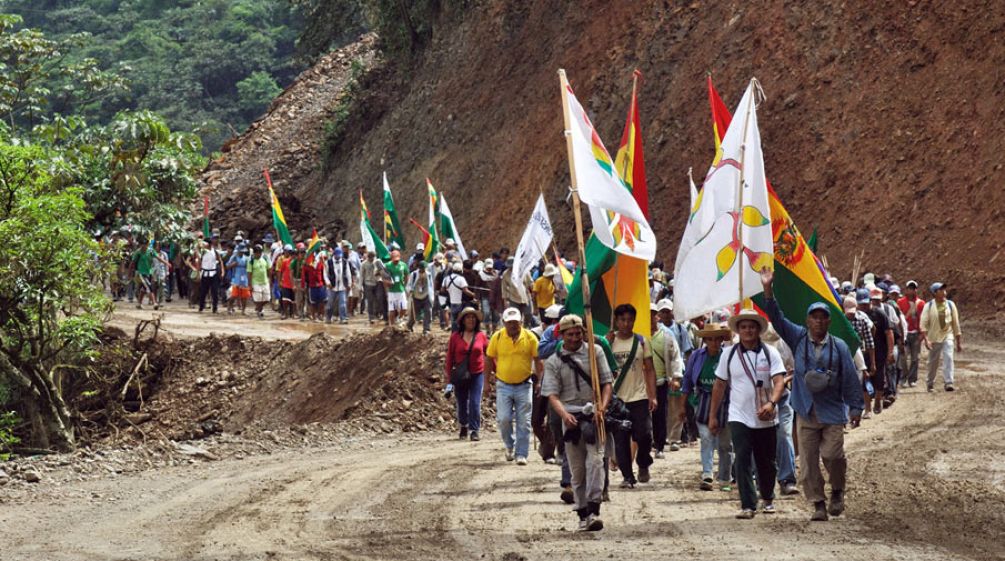Bolivia stops construction of road through National Park
 Indians on their protest march
Indians on their protest march
Oct 28, 2011
Bolivian President Evo Morales has enacted a law (Ley Corta) that prohibits the construction of a road scheduled to run through the TIPNIS National Park.
Bolivian President Evo Morales has enacted a law (Ley Corta) that prohibits the construction of a road scheduled to run through the TIPNIS National Park.
Thus, the week-long protests by the indigenous people living in the rainforest area have come to a successful end. Their victory and, following this, the protection of their natural habitat have now been signed into law. However, it did not look good for a long time. The Indians’ protest even threatened to divide the country. Here is a chronology of events.
Eight weeks ago, thousands of Indians – many of them women and children – living in the Amazon rainforest in Bolivia set out on foot on a peaceful march to the Government Palace in La Paz. The occasion: The government plans to construct a road running straight through the rainforest, the Indigenous Territory and the Isiboro Sécure National park (TIPNIS) and thus, ignores the residents’ rights. The indigenous people speak out against the construction of the road as it poses a threat to the livelihoods of people and nature. That is why they want to talk personally with the Bolivian President Evo Morales.
On September 27th, 2011, they manage to achieve an important success – but it comes at a price: “Due to the recent incidents and general national protests, I have suspended the project in TIPNIS. Let’s have the people decide – above all, the people living in the affected departments of Cochabamba and Beni”, says the head of state of the Andean country. However, this success is overshadowed by violent outbreaks and at least one fatality. On the weekend, the marching Indians are stopped by police units. By firing tear gas at them and brutally beating them, the police finally disperses the protesters on Sunday and arrests several of them, including the Indian leaders. More than 50 people are injured.
Morales has been known worldwide as the first indigenous president of a country, and he is famous for his commitment to the environment and indigenous people. Rainforest Rescue supports the protest march for the preservation of the TIPNIS rainforest. On August 20th, we present the Bolivian ambassador in Berlin with a protest letter against the construction of the road which is signed by more than 20.000 people. President Morales needs to stay true to his principles and stand on the side of those speaking up for the protection of the Amazon region and the indigenous people.
Update, September 29th, 2011: Bolivian Defence Minister Cecilia Chacón criticizes the violence against the demonstrators and resigns in protest on Monday. She calls President Morales to resolve matters through dialogue. “I do not agree with the government’s decision to intervene in the march and I cannot defend or justify the measure when alternative solutions within a framework respecting human rights existed. My decision is irrevocable, there is no going back”, her resignation letter to the President says.
On Tuesday, September 30th, Bolivian Interior Minister Sacha Llorenti also quits after being heavily criticized over the acts of police violence. The prosecution investigates. On Wednesday evening, the head of state apologizes to the victims of the brutal police raid. Once again, Morales insists that he did not order the police operation: “Noone in the government would have thought such an attack could happen to our indigenous brothers.” Morales announces that a committee will be convened in order to investigate the incidents. “We have to correct our errors.” Now, he plans to seek a peaceful settlement with the highway opponents.










